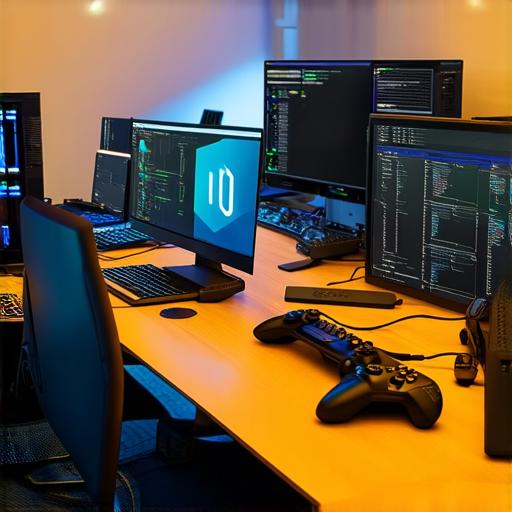The video game industry is growing rapidly, and the demand for skilled game developers is on the rise. As an aspiring game developer, you may be wondering what qualifications are required to pursue a career in this exciting field. In this article, we will explore the different types of qualifications that can help you become a successful video game developer.
Educational Qualifications
The first step towards becoming a game developer is to obtain an educational qualification that prepares you for the job. There are several types of educational qualifications available, including:
-
Bachelor’s degree in computer science, game design, or a related field: A bachelor’s degree in one of these fields provides you with a solid foundation in programming, mathematics, and game design principles. It also introduces you to the latest technologies and tools used in the industry.
-
Master’s degree in game development or computer science: A master’s degree is an advanced level of education that allows you to specialize in a particular area of game development, such as programming, art, or animation. This type of qualification provides you with the skills and knowledge needed to lead a team of game developers.
-
Bootcamps and online courses: There are many bootcamps and online courses available that teach you the skills required to become a game developer. These programs are designed for individuals who want to learn a new skill quickly and cost-effectively. They typically last between six months to a year and cover topics such as programming, game design, and art creation.

Professional Qualifications
In addition to educational qualifications, there are several professional qualifications that can help you become a successful video game developer. These include:
-
Certification from a professional organization: There are several organizations, such as the International Game Developers Association (IGDA), that offer certification programs for game developers. These programs provide recognition of your skills and knowledge in specific areas of game development.
-
Internships and freelance work: Many companies offer internships and freelance opportunities to aspiring game developers. These opportunities allow you to gain practical experience in the industry and build a portfolio of work that can be showcased to potential employers.
-
Networking: Building a network of contacts in the gaming industry is crucial for your success as a game developer. Attend industry events, join online communities, and connect with other game developers to learn about new job opportunities and gain valuable insights into the industry.
Skills Required for Video Game Development
In addition to qualifications, there are several skills that are essential for becoming a successful video game developer. These include:
-
Programming: Knowledge of programming languages such as C++, Java, or Python is essential for writing code and creating games.
-
Game design: Understanding of game design principles, such as level design and user experience, is crucial for creating engaging and fun games.
-
Art skills: Ability to create art assets, such as characters and environments, can help you stand out in the competitive job market.
-
Collaboration: Being able to work effectively with a team of artists, writers, and other developers is essential for successfully developing complex games.
-
Communication: Effective communication skills are necessary for explaining your ideas to stakeholders, collaborating with team members, and presenting your work to clients or executives.
Real-Life Examples of Successful Game Developers
There are many successful game developers who have followed different paths to achieve their goals. Here are a few examples:
-
Markus Persson (Markus “Notch” Persson): Notch is the creator of Minecraft, one of the most popular games in history. He started out as a solo game developer and built his game from scratch before selling it to Microsoft for $2.5 billion.
-
Clifford Surname: Clifford Surname is a veteran game designer who has worked on games such as Portal, Half-Life, and Counter-Strike.
